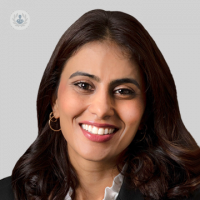ADHD: the signs, diagnosis, and treatment
Escrito por:ADHD is a neurological disorder that can lead to difficulty concentrating and hyperactivity. In her latest article, renowned psychologist Dr Bijal Chheda-Varma explains the signs and symptoms of ADHD, its diagnosis, and the different treatments for the disorder.

What are common signs of ADHD?
The signs of ADHD can be divided into four categories:
- Difficulty focusing or concentrating on something
- Unorganised, and finding it hard to plan and prioritise life, work, homework etc.
- Hyperactivity, and a sense of restlessness. This can either manifest as physical or mental restlessness.
- Impulsive thoughts and actions, as well as mood swings.
These are the key signs of ADHD.
If you suspect you, or your child, has ADHD, which specialist should you see?
If you are looking at having a diagnosis and assessment, you can be seen by a psychologist or psychiatrist. A psychiatrist can offer medication, and a psychologist can offer cognitive behavioural therapy and other treatments for ADHD.
What assessments are used for ADHD? Is there a standardised test?
There are standardised psychometric tests for ADHD diagnosis. These are known as “gold standard instruments”, and are used across the globe. They comprise questionnaires, a comprehensive discussion with a psychologist or psychiatrist, and a new AI-based test that ascertains if someone has symptoms of ADHD through a computerised test.

What is the most common treatment for ADHD?
The most-common ADHD treatments are medication and cognitive behavioural therapy.
What are some non-medical ways to manage ADHD?
The best way to manage ADHD without medication is a good regimen of exercise, sleep, diet and structure in your day. Exercise can have a really good impact on people with ADHD, who may or may not need to be on medication.
Does ADHD worsen with age?
This is a difficult question. There are no clear statistics or research on whether or not ADHD improves or worsens with age. However, what is important to be aware of is that undiagnosed and untreated ADHD will get worse with age, as their life becomes more complex.

Dr Bijal Chheda-Varma is a leading consultant chartered psychologist (CPsychol, BPS) based in London. If you would like to book a consultation with Dr Chheda-Varma, you can do so today via her Top Doctors profile.


